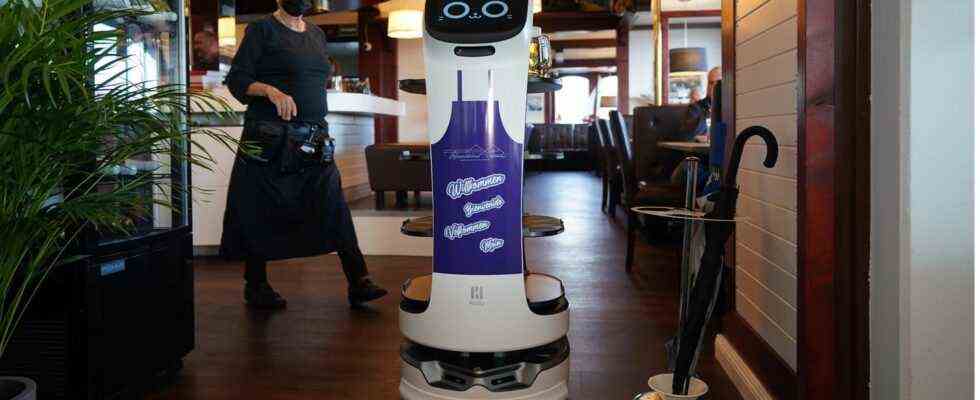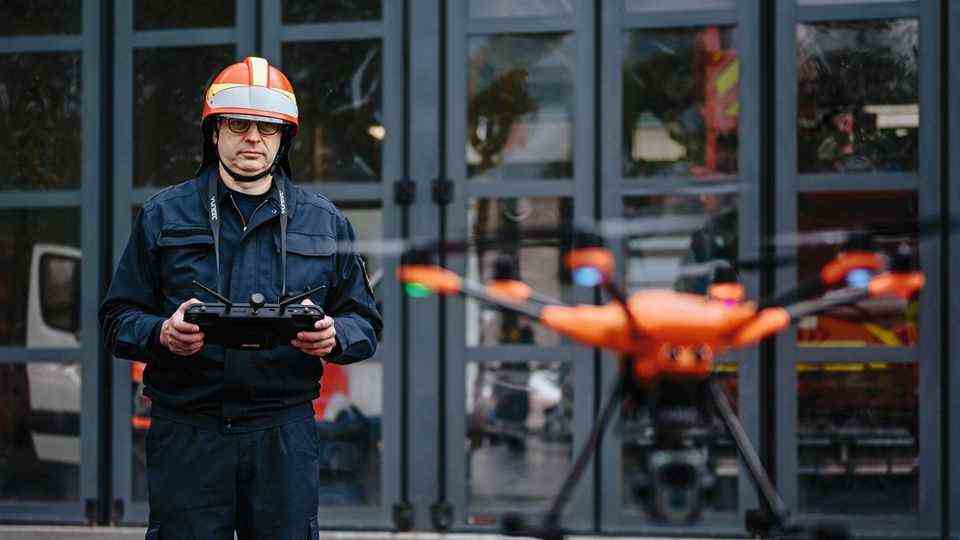Robo waitress
A restaurateur lacks staff – now a robot is serving the food
The serving robot “Bella” drives autonomously through the restaurant to the tables.
© Marcus Brandt / Picture Alliance
The catering industry has a problem: The corona pandemic has exacerbated the shortage of staff, in many places employees are “in short supply”. A restaurateur has now brought extraordinary help into the house – a robot.
She is Schleswig-Holstein’s first robot waitress: Bella from China. For a few days she has been serving food in a restaurant in the Baltic Sea resort of Grömitz. With the serving robot, innkeeper Tim Bornewasser wants to counteract the staff shortage in the catering trade. The speaking machine should by no means replace human service staff, says Bornewasser. But he can relieve them of walking distances, for example between the kitchen and the dining room, and thereby noticeably relieve them.
The robot looks like a serving trolley with four trays, instead of a face it has a display with a cute cat face. Fully loaded with orders, he rolls from the kitchen to the tables. “Here comes your food,” says a friendly female voice. If the path is blocked, the voice asks: “May I stop by, please” and after dinner, “Bella” brings the dishes back into the kitchen. The actual serving, taking of orders and clearing of the tables are done by Bella’s human colleagues.
The technology should fix it
“I got the idea of purchasing the robot when many service staff turned their backs on the catering industry in the Corona crisis,” says Bornewasser. “That cannot be compensated for with more rest days alone, which is why we are now relying on technology.”
According to Bornewasser, the service robot cost around 20,000 euros. “He doesn’t need a vacation for this, never gets sick and can theoretically be on duty seven days a week. I assume that it will have amortized itself after 120 days,” he says. In any case, the first reactions of his visitors to Bella are very positive.
Nationwide, according to the German Hotel and Restaurant Association (Dehoga), almost 80 percent of all catering establishments now have major problems finding suitable workers. However, the Schleswig-Holstein regional association of Dehoga is still cautious about the use of robots in service. “These are individual company decisions that we do not evaluate,” said the managing director of Dehoga Schleswig-Holstein, Stefan Scholtis, on Tuesday. “At the moment we see this more as a marketing campaign by the company. It remains to be seen whether this will prevail.”


